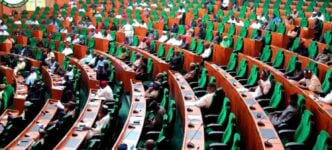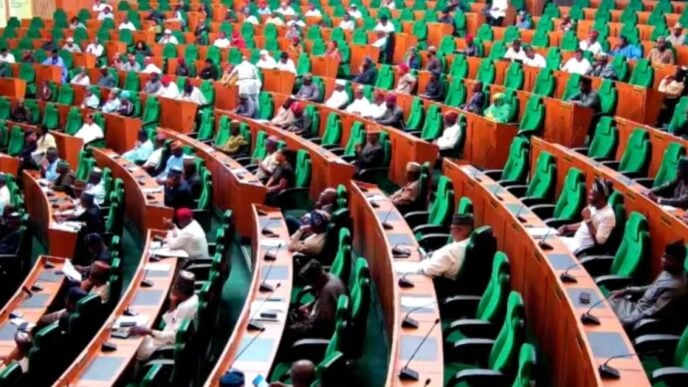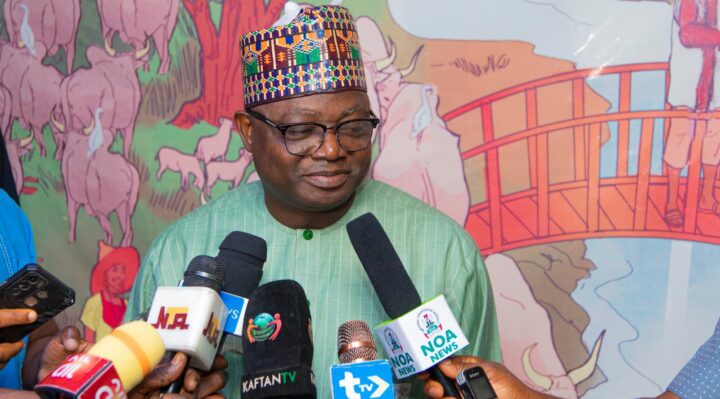Nigerian senate | File photo
A bill seeking to establish the National Agency for Malaria Eradication (NAME) has passed the second reading in the senate.
Ned Nwoko, senator representing Delta north, sponsored the bill titled “A Bill for an Act to Establish the National Agency for Malaria Eradication and for Related Matters, 2025 (SB. 172)”.
The bill was presented during plenary on Thursday and seconded by Victor Umeh, senator representing Anambra central.
According to the World Health Organisation (WHO) 2024 report, Nigeria accounts for over 184,000 of the 600,000 global malaria deaths recorded annually — the highest in the world.
Advertisement
Nwoko described the toll as a national emergency that demands an immediate and coordinated legislative response.
“Malaria is not merely a public health issue; it is a structural crisis that impairs maternal health, drains economic productivity, and impedes national development,” the lawmaker said.
The senator said malaria is responsible for about 11 percent of maternal deaths in Nigeria and contributes to miscarriages, infant deaths, stillbirths, and severe anaemia.
Advertisement
He added that beyond the health impact, malaria imposes a heavy economic toll, including the loss of millions of man-hours, reduced business productivity, and increasing pressure on the country’s healthcare infrastructure.
Nwoko said the proposed agency would be tasked with leading national efforts to eradicate malaria.
He added that it would be responsible for formulating and implementing policies on malaria eradication, coordinating multi-sectoral responses with legal authority, and mobilising resources efficiently and transparently.
According to him, the agency would also support vaccine research and genetic innovations targeting malaria.
Advertisement
Nwoko said the current structure of malaria control in the country is fragmented and ineffective.
He argued that the National Malaria Elimination Programme (NMEP) lacks the operational autonomy to lead such a critical national mandate, while the National Primary Healthcare Development Agency (NPHCDA) has limited capacity and reach.
“A fragmented structure cannot confront a mutating threat,” he said.
“We need a unified, science-driven, and legislatively backed institution with the singular mandate to end malaria in Nigeria.”
Advertisement
Citing the scale of funding mobilised for COVID-19, the senator questioned the global community’s inaction on malaria.
“If malaria were endemic to Europe or North America, we would not still be grappling with it a century later,” he said.
Advertisement
The bill drew cross-party support from lawmakers, including Ede Dafinone representing Delta central and Ezenwa Onyewuchi from Imo east.
Dafinone said malaria has had a severe negative impact on Nigeria’s gross domestic product (GDP).
Advertisement
“Malaria’s impact on maternal mortality can destroy young families. This agency will reduce the impact of sickness and deaths among the Nigerian people,” Dafinone said.
Onyewuchi said malaria is a major public health issue in the country.
Advertisement
“It is important for us to fight the scourge as a nation,” the Imo lawmaker said.
Barau Jibrin, deputy senate president, referred the bill to the committee on health, which is expected to report back within four weeks.
On February 9, the national assembly increased the allocation to the country’s health sector by N300 billion in the 2025 approved budget.
The senate and house of representatives passed the 2025 budget after raising it from N54.2 trillion to N54.9 trillion.
In the previously proposed 2025 budget, the federal government allocated N2.48 trillion to the health sector, representing 5.18 percent of the total appropriation.











